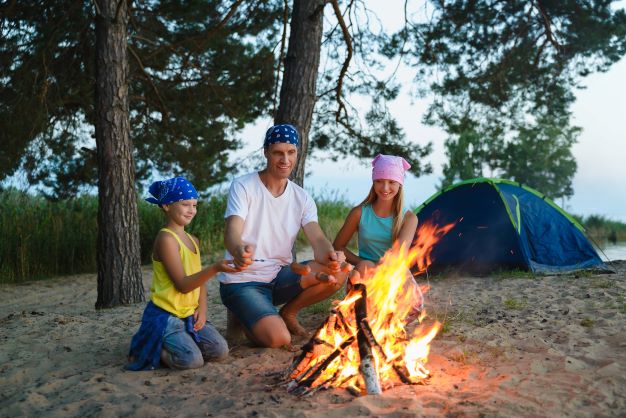What to Know Before You Leave a Campsite in the Wilderness
Camping is one of the great American pastimes. It provides the perfect opportunity to unwind, de-stress, and connect with nature. However, it is vital to remember that you are visiting the wilderness as a guest. You should always take great care to be a good guest and leave your campsite better than you found it. As the Boy Scouts of America always say, “leave no trace.”
Clean Up Your Trash
Leaving trash scattered around your campsite is a problem for several reasons. First, it is unkind toward the next campers who will be taking your spot. The last thing they want on their camping trip is to be greeted by soda cans, beer bottles, and other debris and be forced to spend the first little bit of it cleaning up your mess.
Also, trash is dangerous for wildlife. Animals can get caught up in your trash or they might try to eat it and become seriously ill. Make sure to dispose of your trash properly. Many wilderness areas require you to carry your trash out with you. Bring a trash bag or two with you on your camping trip so that you will be prepared if that is the case.
Put Out Your Fire
The western United States has seen more and more forest fires over the past couple of years. Even more concerning, these fires seem to be getting even more intense. It is absolutely imperative that you put out your fire every time you leave camp. You should never leave a fire at a campsite.
All it takes is a single ember and a tiny gust of wind to start the surrounding forest ablaze. Embers continue to radiate extreme heat long after the flames have died down. This means that you must put your fire out completely. There should be no live coals or embers whatsoever when you leave your campsite.
Properly Dispose of Waste Water
As you pack up camp, be sure to dispose of your wastewater appropriately. Dish and hand washing water should never be dumped within 200 feet of streams or lakes. Human waste should be buried in the soil at least 6 inches deep. This should also be disposed of no more than 200 feet from rivers, lakes, and streams. If you are camping in an area without bathrooms or garbage receptacles, you will need to pack out your used toilet paper and feminine products with you.
Any time you get to spend time out in nature you should consider yourself a privileged guest. As such, you have certain responsibilities. Your job is to leave your campsite better than you found it, leave no trace, and protect the plants and wildlife that call the area home.
Did you enjoy this article? Here’s more to read: 5 Ways Technology Can Help You Increase Sales in Business
